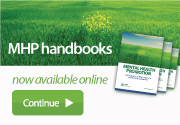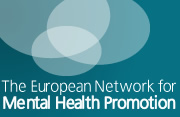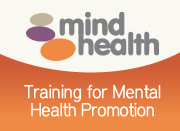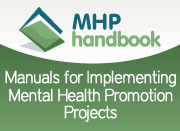Tools
- Utilities:
- Print this page
- Send this page
- Font size:
- Increase font size
- Decrease font size
Browse Database
Login, so as to add your own items.
-
Resilienz-Fragebogen RS13 (inkl. Auswertung)
30/10/2012
In bisherigen Veröffentlichungen zur Struktur der Resilienzskala (RS) wurden durch explorative Verfahren (Faktorenanalyse) verschiedene Modelle ermittelt und überprüft. Die Autoren der Originalskala, Wagnild und Young (1993), gaben eine zweifaktorielle Struktur mit einer Unterteilung von Resilienz in »Akzeptanz des Selbst« und »Persönliche Kompetenz« an. In diesem Beitrag werden das Konstrukt Resilienz und unterschiedliche Fragebögen zur Erfassung der Resilienz kurz skizziert. Die Resilienzskala RS-25 und eine Kurzform RS-13 werden vorgestellt. Für die Entwicklung dieser Kurzversion wurden Datensätze aus einer repräsentativen Befragung der deutschen Bevölkerung (Schumacher et al. 2005) und aus unterschiedlichen klinischen Befragungen zusammengefügt. In einer konfirmatorischen Analyse zeigte die Kurzskala RS-13 einen guten Modell-Fit. Sie kann als ökonomisches Messinstrument zur Erfassung von Resilienz in der klinischen Diagnostik eingesetzt werden. Settings: Workplace | Education | Residence for Older People
MHP Steps: Implementation -
The I-am-Me-Program. Strengthening Self-worth in Kindergarten.
08/03/2011
The program is based on the concept of salutogenesis by Aaron Antonovsky. Its aim is to promote the self-worth of children and their sense of belonging within a group. A polar bear and an elephant are accompanying the children during the „health-days“. They learn together how to recognize and to use their own strengths, they exercise caring for themselves and accepting others as well as resolving conflicts non-violently. The program consists of eight modules which include two to six „health days“. Each day can be planned individually, situationally and contextually. One I-am-me-day usually takes about two hours. The program addresses children of the age between 5 and 7 years who will attend school in the upcoming two years. The program includes time tables and materials. These materials can be used and modified according to individual needs. Exercises, graphs and Photostats are prepared for use without any further qualifications needed.
Settings: Education
MHP Steps: Implementation -
The Senior Companion Program
07/12/2009
The Senior Companion Program is part of Senior Corps, a network of national service programs that provide older volunteers with the opportunity to apply their life experiences to meet community needs. Because of this program, thousands of elders are able to continue living an independent life in the comfort of their own homes. Locally, the Senior Companion Program is sponsored by the city of Phoenix Human Services Department, Senior Services Division. Senior Companions are healthy older adults who help other adults and seniors live independently. They provide friendship and support services to clients who may be lonely, ill, or disabled. Each Senior Companion serves from three to eight clients, depending on the needs of each client. Services of a Senior Companion may include: • Accompanying their clients to medical appointments, the grocery store, senior or community centers or social events • Assisting their clients in obtaining needed social services and completing daily tasks • Providing short periods of relief to primary caregivers such as family members. Without the help of Senior Companions, many older adults would not be able to continue living at home and would need more expensive, less personal care. Settings: Residence for Older People
MHP Steps: Implementation -
Problem Solving Treatment: Preventing Depression in Age-Related Macular Degeneration
07/12/2009
Age-related macular degeneration is a prevalent disease of aging that may cause irreversible vision loss, disability, and depression. In their study Rovner, Casten, Hegel, Leiby & Tasman proved that Problem solving treatment prevented depressive disorders and loss of valued activities in patients with age-related macular degeneration as a short term treatment. They stated that Booster of rescue treatments may be necessary to sustain problem-solving treatment`s preventative effect
Settings: Residence for Older People
MHP Steps: Preparation -
The Warwick-Edinburgh Mental Well-Being Scale (WEMWBS)
03/12/2009
Newly developed scale for assessing positive mental health (mental well-being). A 14 positively worded item scale with five response categories. It covers most aspects of positive mental health (positive thoughts and feelings) currently in the literature, including both hedonic and eudaimonic perspectives.
Settings: Workplace | Education | Residence for Older People
MHP Steps: Needs Analysis | Follow Up -
PATHS (Providing Alternative Thinking Strategies)
01/12/2009
The PATHS (Providing Alternative THinking Strategies) curriculum is a program for educators and counselors that is designed to facilitate the development of self-control, emotional awareness, and interpersonal problem-solving skills. The curriculum consists of an Instructional Manual, six volumes of lessons, pictures and photographs, and additional materials. A research book is also available. PATHS is designed for use with elementary school- aged children. The purposes of the PATHS Curriculum are to enhance the social competence and social understanding of children, as well as to facilitate educational processes in the classroom. Settings: Education
MHP Steps: Implementation -
Bulli & Pupe, Intervention Program for the Reduction of Bullying and Victimization in School
25/11/2009
A program developed by Baldry, is directed towards the individual and peer group and aims to enhance awareness about violence and its negative effects. This is achieved by teaching participants about negative effects of bullying, helping them to develop alternatives to aggression by enhancing empathy, and perspective talking skills. The program aims to increase students`awareness that violence and aggression can be reduced and prevented if peers act supportively rather than with nonchalance toward victims.
Settings: Education
MHP Steps: Implementation -
Irish Nationwide Anti Bullying Programme
25/11/2009
A nationwide programme to prevent and manage bullying in Irish schools. There is four key elements in this programme. 1. Training a Network of professionals. Teachers training through a programme of workshops and seminars in order to provide training and support for boards of management, staff, pupils, and parents in the prevention and countering of bullying in their school communities. 2. Teachers` Resource Pack: A pack containing information about bullying behaviour. 3. Parents` Resource Pack: An information leaflet entitled "Bullying: What Parents Need to Know" 4. Work With Pupils: Assisting schools, through the intervention of trained teachers who formed the professional network , in creating a climate that does not accept bullying The program is based on nationwide anti-bullying programme in Norway (Roland & Munthe 1997)
Settings: Education
MHP Steps: Implementation -
Social Decision Making/Problem Solving Program
18/11/2009
The Social Decision Making/Problem Solving Program is intended to be used with all students (regular and special education) in the kindergarten to eighth grades, regardless of ability level, ethnic group and socio-economic level. The Social Decision Making Program is designed to become a strategic part of the teaching process, impacting on behavior, academic learning and the social/emotional life of the school setting. The formal lessons are most effectively taught in at least one classroom session per week (two for special education students), but the SDM/PS approach permeates teaching across several content areas. Because the Program provides a foundation of pro-social, critical thinking and life skill learning for all students, it is often a useful structure for organizing existing school programs. In many sites, social decision making has been incorporated into the school's annual plans for student learning objectives. The Social Decision Making Program contains curriculum lessons in the following areas: - Self-Control and Social Awareness - Social Decision Making Thinking - Applications to Academics and "Real Life" Problems Settings: Education
MHP Steps: Implementation -
CMHA (Canadian Mental Health Associations) Mental Health Promotion Tool Kit
30/10/2009
This online toolkit is organized around a planning model that has been well used in many different communities to achieve a variety of goals. The planning model presents the process of promoting mental health at the community level as a series of steps. The model serves as an overall planning guide, and examples from three projects illustrate the steps Settings: Education
MHP Steps: Needs Analysis | Implementation | Preparation | Follow Up



